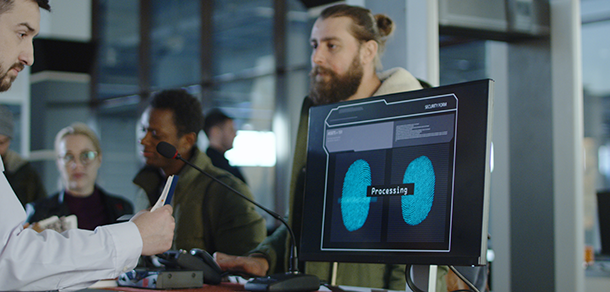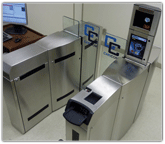Australian biometric ID launched for travelers
22 July, 2020
category: Biometrics, Government, Transit
A new Australian biometric ID system has gone live, designed to support visa and border processing and bring more efficiency to international travel.
The project, called the Enterprise Biometric Identification Services (EBIS) system, is operated by Australia’s Department of Home Affairs. It went live earlier this summer, according to a statement from Unisys Corp. and IDEMIA. The new biometric authentication program relies on the Unisys Stealth (identity) multifactor ID management and authentication tool, and also uses facial and fingerprint recognition algorithms from IDEMIA.
Using EBIS, Home Affairs officials will match “the facial images and fingerprints of people, including those wishing to travel to Australia such as visa applicants, and the facial images for citizenship applicants,” according to the statement. “The system simultaneously facilitates the processing of legitimate travelers and is designed to support anticipated growth in visa applications, border clearances and applications for citizenship over the next 10 years.”
Australian biometric ID and travel growth
That could translate into millions of cases suitable for EBIS use.
According to the Australian government — and these figures represent pre-pandemic trends — a record 9.5 million people visited the country in 2019. That stands as a 143% increase from 2009. “To facilitate travelers’ journeys, border clearance staff need to efficiently verify the identities of travelers and confirm they are who they say they are to prevent delays, avoid queues and improve the overall experience for travelers” the statement added. “In the future, EBIS will provide the capability to quickly flag people who may be crossing the border with fraudulent identities.”
The design and deployment of the new Australian biometric ID and authentication system happened within 18 months of the contract being signed. EBIS can handle 100,000 daily transactions and operate upon a foundation of more than 100 million records. The previous biometric authentication system — also supported by Unisys — operated for 12 years.
“The long term growth in the volume of travelers that will hopefully return after COVID-19, (but so too will) the increased risk of potential terrorist or fraudulent activity. (This) means that effective border security is more important than ever,” said Rick Mayhew, vice president and general manager for Unisys Asia Pacific.
Possible Pull Quotes:
The long term growth in the volume of travelers that will hopefully return after COVID-19, (but so too will) the increased risk of potential terrorist or fraudulent activity. (This) means that effective border security is more important than ever.



